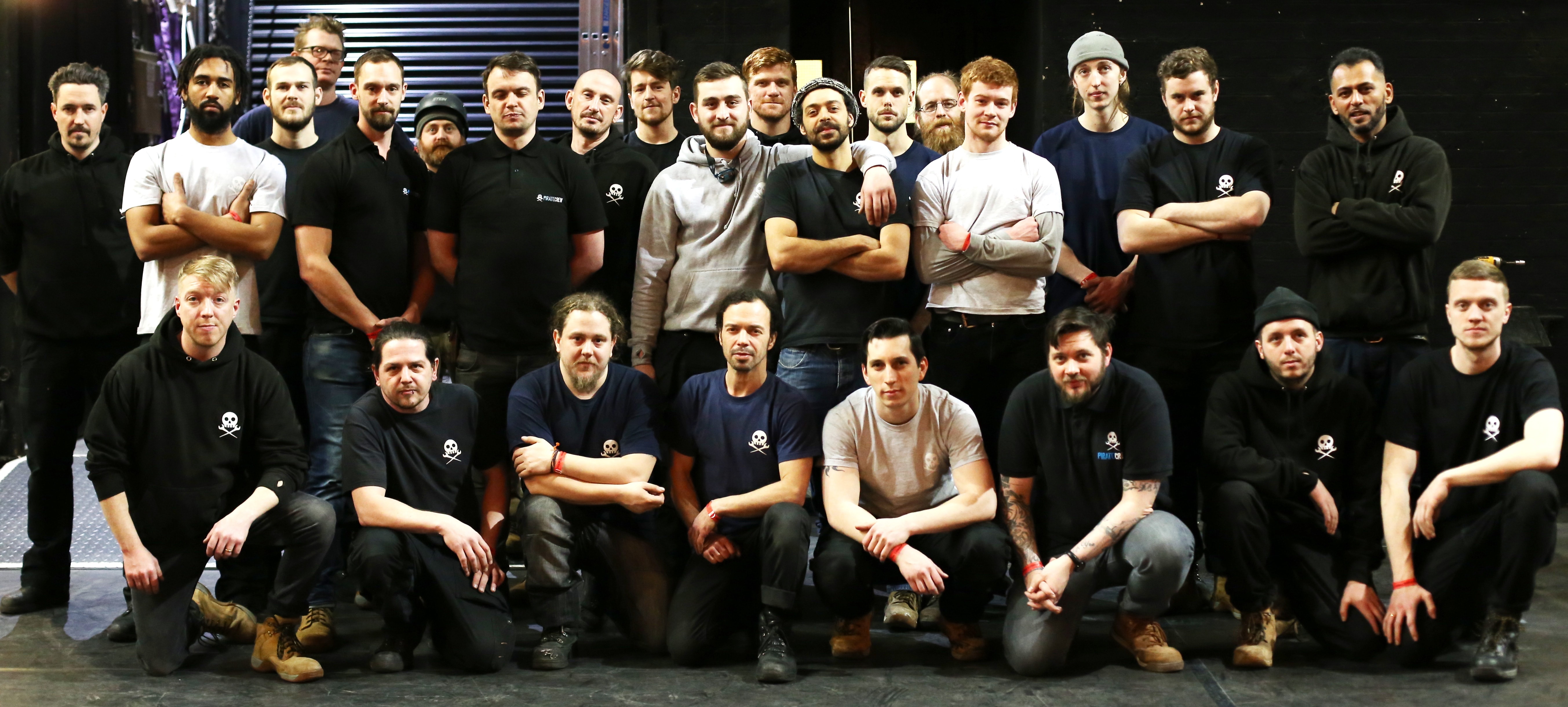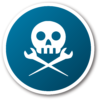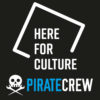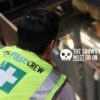virus protection protocol for crew
Construction Periods – Fit Ups, Get Outs & Strikes
Topic Shortcuts
Why The Need For Change?
It’s a miracle that you’ve been asked to work in the entertainment industry in the current climate. We should be eternally grateful for the work. We were the first out and we’ll be the last back proper. So as we get back to work we should try to be the guiding standard when it comes to keeping ourselves and others safe, as well as managing the spread of the disease.
At the same time any policies should be taken with consideration of normal health and safety practices. Where the two conflict, or when social distancing itself creates a hazard, you should talk it through with your peers or supervisor, to tackle the job together whilst mitigating the risk.
An open dialogue, involvement from and respect for all parties, is the only way that these new, radical policies will be consistently adhered to. If we generate policies on paper only, that are often ignored, then we have no right to be upset with anyone but ourselves should this situation arise again.
You are probably the most at risk group given the diverse nature of your roles and many different departments and venues in which you are asked to work.
We hope that whatever job you go to, your wellbeing will be respected equally to all the other contractors and venue employees. We know this to have not been true in the past but it must be this way moving forward.
Guidance for Individuals
Important** If you do not adhere to, or openly flout the rules below without consideration or valid explanation, you will be sent home, unpaid.
getting ready & travelling
- On the day prior to work, you will be contacted by the Pirate Crew office by phone, text or email for a quick check up on your health and answer a few questions to determine your level of potential exposure. These questions will feel repetitive – get used to it.
- You need to bring your own Boots, Helmet, Face Covering, Gloves and hand tools.
- Bring a water/drinks bottle with your name on it, so not to get confused with anyone else’s bottle.
- Bring your own hand sanitizer and if working outside in the sun – your own sun cream.
- Bring a packed lunch.
- Anything you wear or bring should be newly cleaned/disinfected. Clothes should be fresh, boots, tools and helmets wiped prior to work start.
- You should have excellent hygiene and be washed before work.
- Leave plenty of time to get to work, don’t rely on old habits or knowledge, assume everything is different now.
- Your method of travel to the job should be considered to avoid the spread of the virus. Actively avoid busy public transport carriages. Take a walk or cycle whenever possible – though don’t be late or your rush to work might give you a faux temperature reading when you arrive!
- We’ll do our best to discover and inform you of bicycle storage on site prior to the job date.
- Avoid crowds and try not to use Public Transport – especially at peak times where control is impossible.
- If travelling by car, maximum of two persons per car and sitting in diagonal opposites, windows open, face coverings on. Passenger should touch as little as possible and drivers should be so kind as to disinfect surfaces for their passengers
- If you have any of the symptoms of the Virus and turn up to work, you are endangering the livelihoods and health of everyone you come into contact with. Tell your supervisor at the earliest possible moment that you can not come to work, stay home and self isolate.
General considerations to adapt to
- Every part of the working day will be needed to change from how it used to be – don’t fight it or try to escape your duties. We’re in this together for the long haul.
- Every Venue and Client will have their own policies dealing with the virus mitigation – be sure to ask what measures are in place when you arrive, and adhere to them at all times.
- If a client’s measures contradict our own, and if this contradiction cannot be overcome through discussion, or if a client’s measures are unsuitable and increase risk of contamination or other H&S risk, then speak to your supervisor and/or the Pirate Office – at the time.
- You will be asked far more regularly to wipe, clean and disinfect surfaces. This is a part of working life now and perhaps forever. Get ahead of the curve and just do it without being asked – as ever just be helpful.
- The amount of wiping and washing will get boring – but get used to it. The quicker we make this a routine, the sooner it stops being a distraction to the actual work.
Upon Arrival
- Wash or sanitise your hands. Hopefully there will be a hand sanitising station at the entrance.
- Observe and adhere to any signage or distancing marks
- Don’t assume to be able to enter the worksite immediately
- Stand 2 metres away from other people at all times. If anyone is caught not adhering to the rules of the venue will need to be sent home
- Your temperature will be taken by the client, hopefully with a heat sensing camera. If a thermometer, disinfect it yourself before using.
- If a person measures a temperature of over 38 C, then that the person should not be allowed onsite. If you think your reading is high because you have rushed to work – express this and take another test in ten minutes
- The client may well ask you to fill in a questionnaire either vocally or perhaps an online form. Do this as soon as asked, it’s for your benefit.
- The client may have designated particular toilets, working areas, resting places and bag stowing zones – for particular working groups – find out.
- Find out where you are working that day, the designated entrance, permitted routes as well as out-of-bounds areas.
- Assume that the flow of people will be controlled in some way, as to increase distancing. In small reception areas there should be a 1 Out/Through 1 In policy. Even if this isn’t the venue policy it should be your policy
- Find out what the rules are. Hopefully this will be delivered to you in the form of a CDM (Construction Design and Management) toolbox talk at the start of the day. If not then ask.
Your behaviour whilst onsite
- Like other aspects of Health and Safety, you are responsible for your own Health and that of everyone around you. Don’t forget it.
- Do not borrow or share tools
- Do not share your phone
- Do not shake hands
- Do not borrow or share PPE
- Do not touch your face. If you have an itch try to scratch it with your upper arm or shoulder.
- Don’t touch anything unless you need to touch it.
- When you do need to touch something, touch it as little as possible.
- If you need to cough or sneeze, cover your mouth with your inner elbow and do your best to stand away from others until you do.
- Phones should be put away and not used unless absolutely needed to do so. If you do use it, clean it when you wash your hands.
- When idle or waiting for the next task; be proactive in your self distancing from other personnel – 2 metre minimum
- If you see other personnel touching their face or ignoring social distancing rules – remind them. If the person continuously flouts the rules, report this directly and immediately to your supervisor, and or the Pirate Office.
- Wipe down any communal equipment when you have finished using it
- Wipe down communal equipment before you use it
- Each time you clean your hands, do it thoroughly for 20 seconds with soap.
- Work with and alongside as few people as possible during the day.
- Meetings need to be concise and involve as few people as possible – Do not get involved in meetings or discussions about work problems unless invited to/having the need to.
- The venue should provide an area for you to eat, distant from others. Use it and try not to leave the working venue during the day.
Surface Cleaning
- You will be asked regularly throughout a working day to wipe and disinfect surfaces, particularly on doors and handles.
- If working as General Crew you will more than likely be asked to do so more than production staff or managers.
- You should not be asked to clean or disinfect an area in which you have not been working. There are obviously grey areas in this regard but feel free to speak to your supervisor or call the Pirate Office for on the spot clarification
- Higher paid staff are not exempt from cleaning duties, nor should lower paid staff be abused and forced to clean areas in which they have not worked.
working groups
- We all have a joint responsibility to help reduce the infection rate. This means we need to now have to try to manage who works with who, trying to reduce that as much as possible. Here’s what you should expect:Being partnered with a working buddy during a day’s work
- Being partnered with the same person during an entire working week
- Being partnered with the person you travelled to work with
- Working groups to be created, both in planning for jobs, and adhoc onsite.
- Working groups to be restricted to particular working areas and operating entirely away from other groups
- To clean equipment (especially handles) before passing on to a different working group
- Far less opportunity for cross department work
- Pirate Crew Office, Supervisors and Clients keeping a record of partnerships and working groups
- Possible staggered start, finish and break times per working group
- Each group will have a supervisor that will be responsible for virus protection – work with them, not against them.
- The supervisor is solely responsible for communicating with other departments
- Working alongside another working group is a potential contamination event – wash your hands after.
virus ppe and personal hygiene
Gloves
- There is no evidence to suggest that any gloves (beyond one-use surgical types which aren’t suitable for manual labour) can prohibit the spread of a virus.
- The very act of putting on and taking off gloves, as well as the false sense of security that it gives a person, has been suggested to actually increase risk.
- However we do suggest bringing them with you, as we know from experience so far that it is reassuring for a client to see it, if they wish it.
Face Coverings
- Face coverings must now be worn at all times, after the World Health Organisation amended their advice at the start of June 2020. But don’t fall victim to having a false sense of security, the face covering alone will not prevent the spread of viruses.
- Avoid touching your face covering and face at all times.
- You need to bring to work with you a face covering that is clean, well fitting & comfortable for you to use.
- When choosing which to buy or how to make your own – consider a tightly woven cotton or better yet, a combination of cotton and either chiffon or silk
- The primary use of a face mask is to restrict your own oral and nasal fluids entering your working environment, especially when having to work in close proximity to others.
- Be aware that wearing a mask in itself can increase your body temperature and make it more difficult for efficient breathing..
Wash or Sanitise Your Hands Thoroughly
- Before leaving for work
- Upon entry to the building (in designated washing facility)
- Before each work period start
- At the end of each work period
- After each potential contamination event:
- Working alongside other personnel not part of your working group
- A period of high tempo/fast/hard physical activity
- When in the presence of someone actively displaying symptoms
- A job involving facing another person or working in close proximity
End of Shift
The end of your work does not mean the end of your shift – you still need to:
- Contribute to the cleaning of surfaces (ask supervisor/client)
- Wash your own hands
- Dispose of your face mask if applicable
- Tidy all work areas under your control
- Inform Supervisor if your health has deteriorated through the day/Confirm in good health.
- Be responsible with your egress from the venue and general attitude to safety as per the above guidance.
Use of Your Personal Data
Production/Technical Managers or nominated persons may have to collect information for all persons involved in the build or strike periods. This may include any of the following:
- Full name
- Dates working onsite
- Contact email Address
- Working group and other members (if known at time of form being filled)
- Tel Number
- How the person travelled to work that day
- How the person is planning to get home after work.
- Confirmation that the person does not have any of the symptoms of Covid-19:
- Persistent Cough
- Fever/High Temperature
- Difficulty breathing
- Headache
- Myalgia (Muscle aches)
- Potential loss of smell
- Conjunctivitis
- Fatigue
- Confirmation that the person is not taking pain relief and if they are they specify what for
- Confirmation that they have not been in contact with persons suspected of having the symptoms of Covid-19
- Declaration that they will adhere to on site social distancing and PPE rules or risk being removed without pay
This information will be kept on file for up to a month to create a data map that will enable management to identify and contact those at potential risk should a person become diagnosed with Covid-19
It’s important.
Advice for Supervisors
- Persons touching their face should be reminded of their duty of care – consider making a game – set a difficult challenge or boring job for anyone caught touching their face or flouting the rules in other ways.
- Venue and Contractors are equally responsible for cleaning at the start and end of working periods, especially at the start and the end of the day – plan time for this in your work.
- Your team should wear face coverings when working close to others and in confined spaces. Use of face masks should be limited to these situations, as there is little proof currently that they would act as an effective barrier to prevent illness in normal situations.
- Your team should not share hand tools or PPE
- Equipment and scenery sharing should be acknowledged and approached positively with management for distancing
- As usual, monitor your team’s wellbeing, Personnel in your team may become hotter than usual because of their face masks and potential increased use of gloves.
- Phones are a major risk for contamination as they carry germs from hand to face. As such they are to be used only when needed, only without touching them to face and wiping them clean should be considered part of the washing hands ritual.
- Your team should have its own cleaning kit within easy reach.
- Consider making one person responsible for equipment wipe downs, but always instil in your team that all of the workforce are responsible for general cleaning of work areas, including you.
- Your team should disinfect any communal equipment before and after use.
- Ensure your team has all had their temperature taken and filled out any venue/production forms prior to work start.
- Take steps and plans to limit double handling of equipment.
- Supervisors to check cleanliness of hands periodically – no exceptions
- However hard to do, try for consistency wherever possible regarding who touches what equipment or scenery.
- Try to keep the individuals apart or at least work in pairs. The goal is for people to stay working with the same people as much as possible.
- As part of the daily routine of working for Pirate Crew you are required to fill out a Senior Tech Report. This will now require detail of working groups and participants to the best of your knowledge and ability.
Procedure if a person feels unwell
Every Venue and Production should make plans for when a person suddenly falls ill, or shows some symptoms of the virus, which could include:
- Quickly getting them a face mask, to wash their hands and then gather their belongings
- Disinfect everything they may have touch – immediately
- Assign a segregated room for which to put sick persons if they need to wait.
- A taxi company willing to take the person home
- Nominated person (wearing face mask) to reinterview the person regarding their recent movements prior to work.
- If you are that person, simply go home, doing your best to protect others in your environment along the way. Once home – self isolate.
EQUIPMENT TRAILERS
As usual – the driver or loadmaster is responsible for opening the door to the trailer and removing load bars. It is highly impractical, almost impossible and highly hazardous to apply distancing rules to Loading and Unloading trailers. Minimising the number of persons required for manual handling eliminates too much margin of error and will undoubtedly lead to manual handling injuries.
In addition, it is presently unknown how long Covid-19 can last on a surface, or whether temperature or type of surface are variables in this equation. This means that the equipment on the container could already be contaminated from the previous venue staff, who may or may not have stringent measures in place.
This means that all other measures should be considered and implemented to combat the risks of person to person contamination.
- The Loading and Unload personnel should be kept as one team with minimal contact with other departments.
- Face coverings should be worn for trailer unloading due to the close proximity to others, confined space and potential for accidental sharing of bodily liquid.
- Face masks and gloves will restrict a person’s ability to release body heat, meaning that they may become hot and out of breath far sooner than normal. Anyone showing signs of fatigue should be swapped out temporarily and asked to drink water. Exhaustion will only cause a lapse in standards and increased risk of accidents.
- The loading area should be completely controlled and public entirely separated by barriers, ideally with 2 metres of redundant no work space on the perimeter.
- Distancing to take place in periods of inactivity or waiting times.
- Communicating lifts between partners and groups should be done with the mouth pointed away from other persons as best as possible.
- Careful consideration to be given to items that make body contact unavoidable – is there another way to move the item?
- The ethos that items should be handled as little as possible to mitigate manual handling injuries, the same for touching the scenery and equipment to avoid contamination – do it as little as possible!
- The Loading Team will be a potential higher risk due to the fact that they will handle most of the equipment for all departments and their close proximity with each other. As such they should be priority of access to nearby washing facilities and water supply. They should also be on the priority contact list, after the works, for checks on health.
This document is far from conclusive and there are many more questions and issues that need tackling but hopefully this will serve as a starting point for communal conversation.



